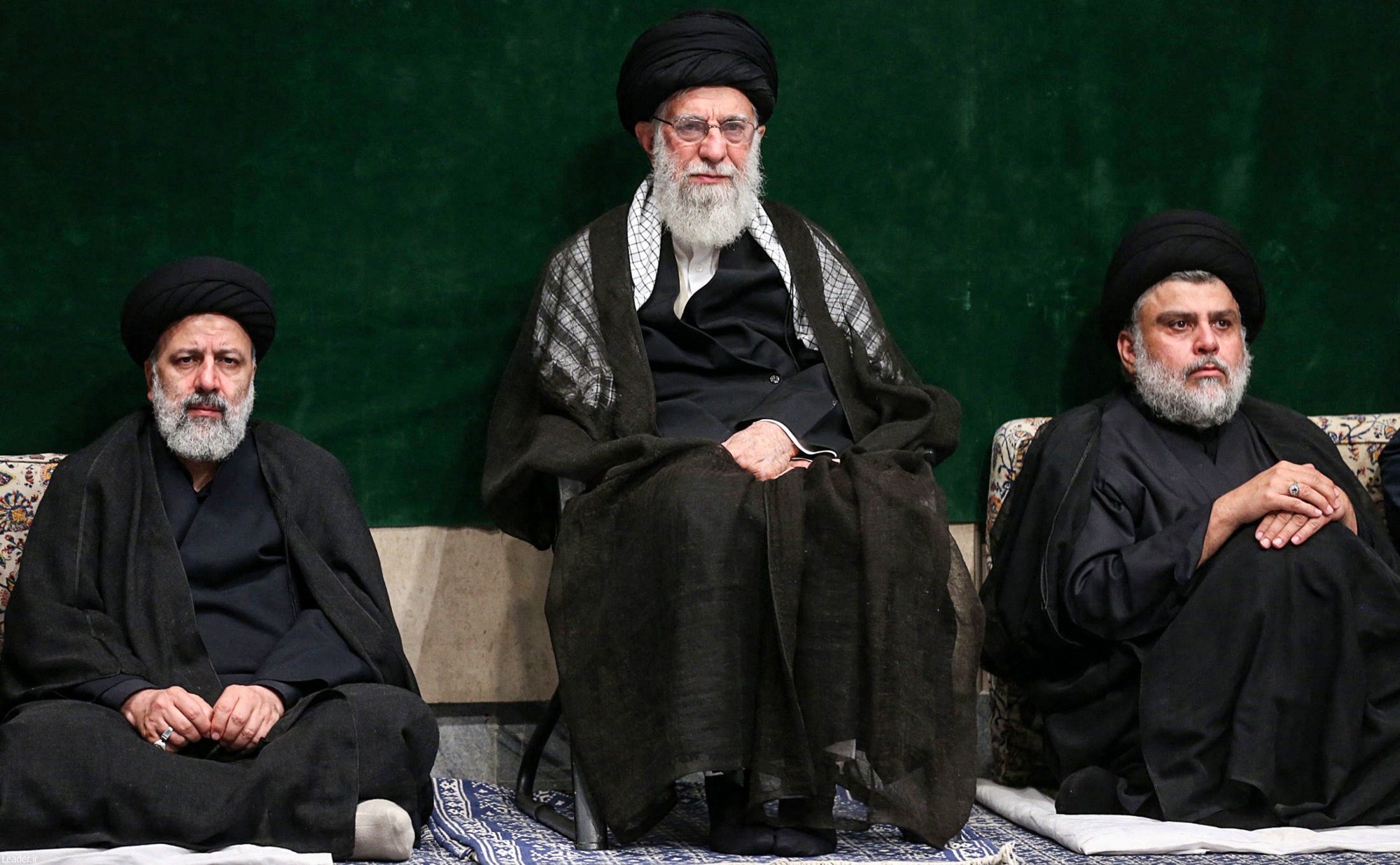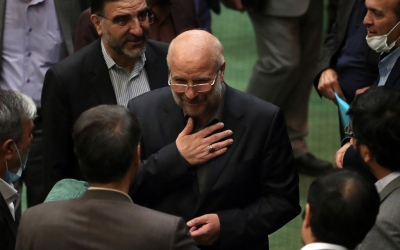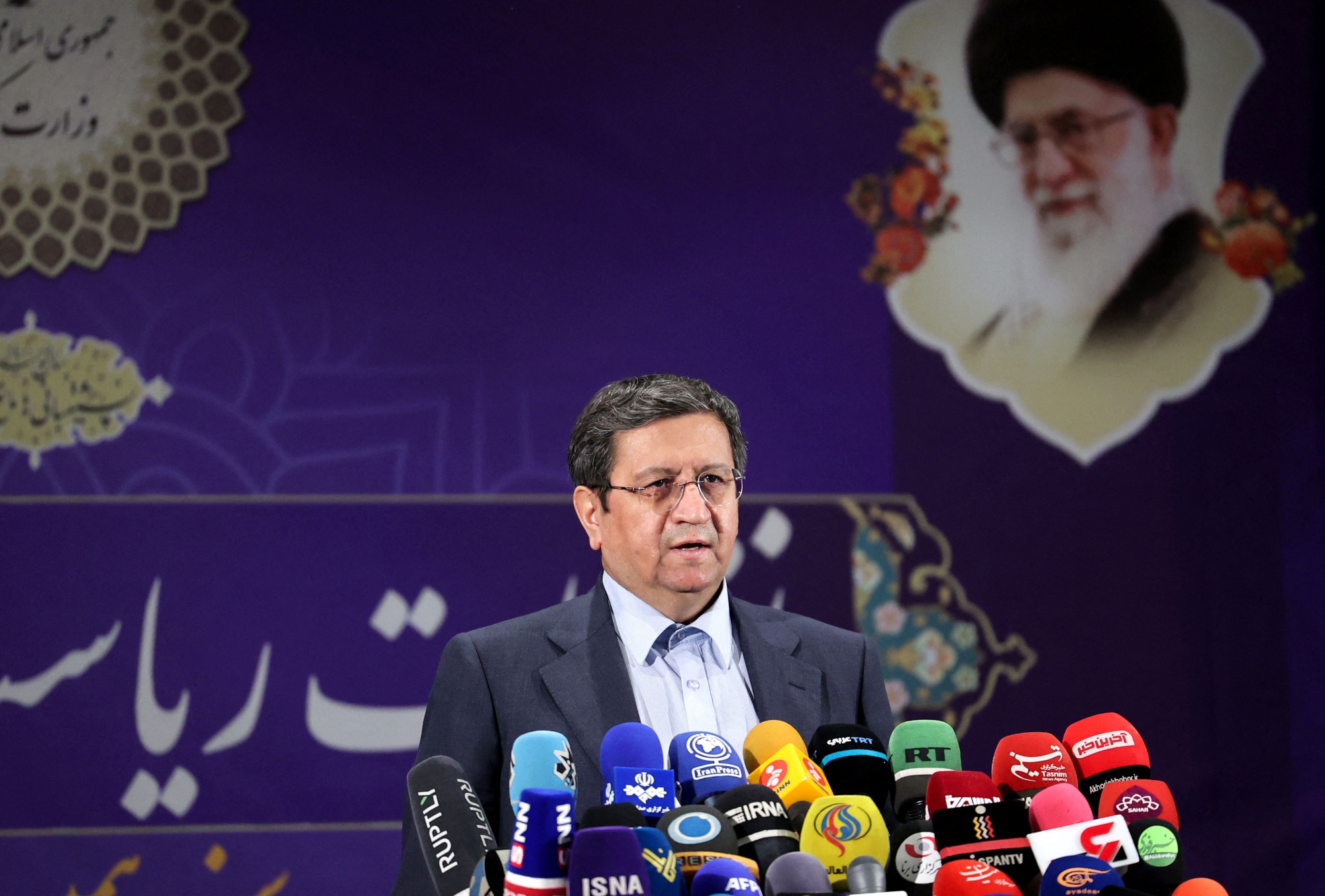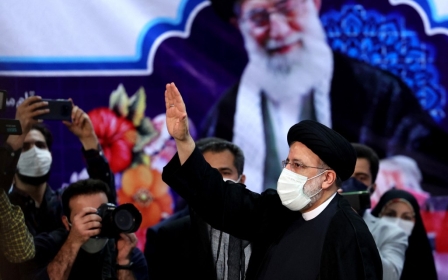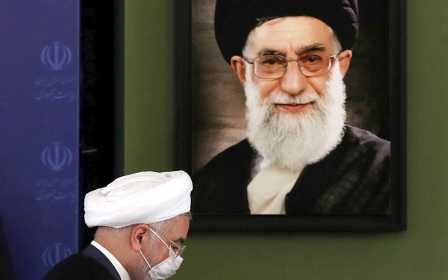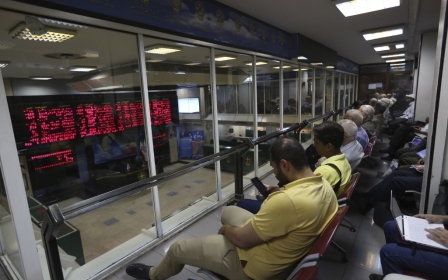Iran elections: Can reformists turn a skewed presidential campaign to their advantage?
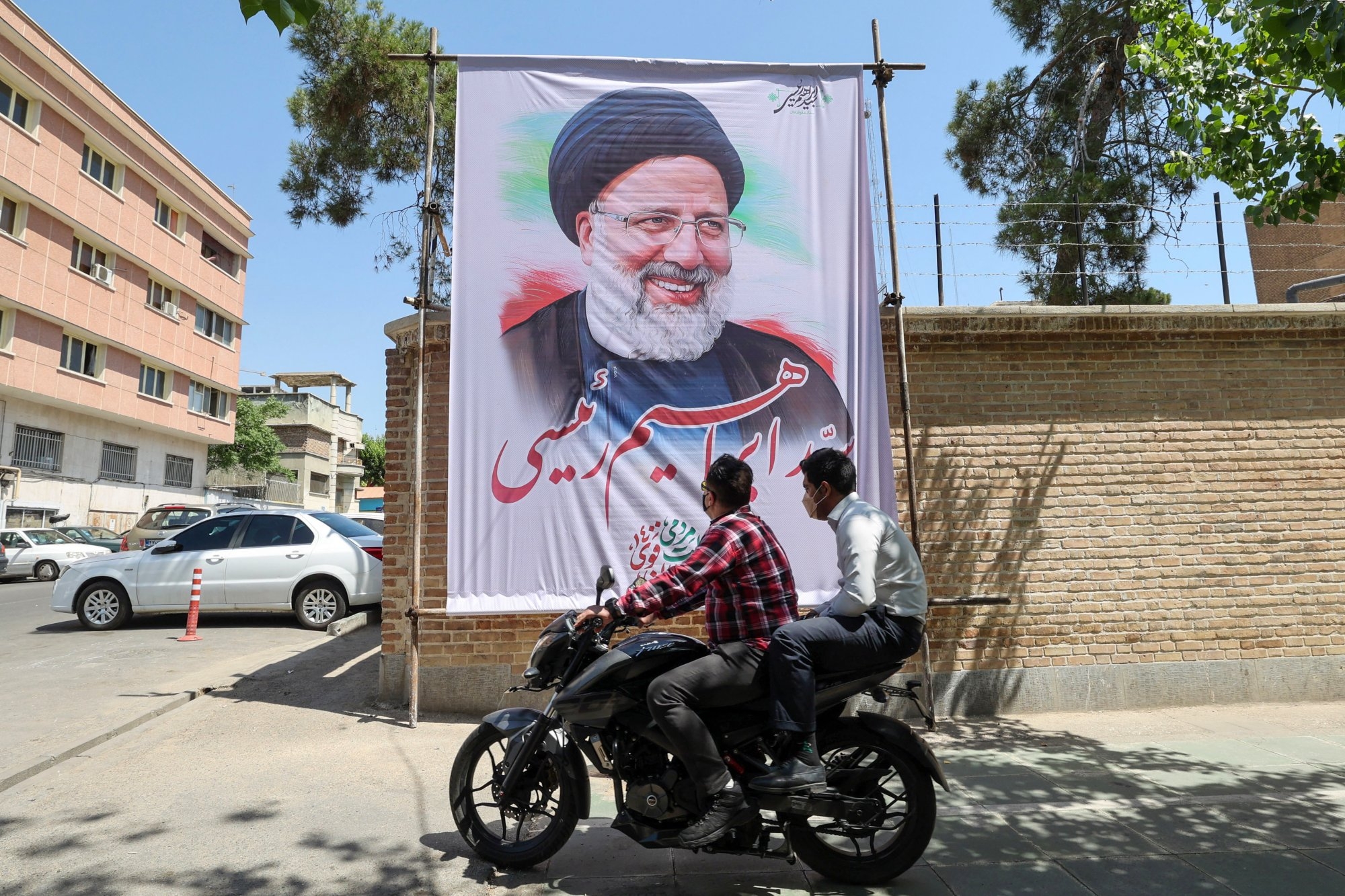
When Iran’s Guardian Council announced on 25 May the final list of candidates vetted to run in presidential elections scheduled for 18 June, the selection came as a shock for a number of Iranians, given its disqualification of prominent reformists and moderates.
Dominated by hardliners, the Guardian Council is an unelected body responsible for overseeing the ballot and validating candidacies during elections in the Islamic republic. Out of 600 would-be candidates, the council narrowed down the list to seven - a rejection rate of almost 99 percent.
While the disqualification of some - like former president Mahmoud Ahmadinejad, also banned from running in 2017 - came as little surprise, other prominent figures were also written off, including Ali Larijani, a moderate currently serving as an adviser to Iran’s Supreme Leader Ayatollah Ali Khamenei, and reformist Eshaq Jahangiri, one of outgoing President Hassan Rouhani’s vice presidents. This came much to the dismay of Iranians who had hoped to cast their votes for these candidates.
Of the approved candidates, five are conservative hopefuls: judiciary chief Ebrahim Raisi; former nuclear negotiator Saeed Jalili; First Vice-Speaker of Parliament Amirhossein Ghazizadeh-Hashemi; former commander-in-chief of the Islamic Revolutionary Guards Corp General Mohsen Rezaei; and MP and news outlet owner Alireza Zakani. On the reformist side, only two contenders: outgoing Central Bank governor Abdolnaser Hemmati; and former Isfahan province Governor Mohsen Mehralizadeh.
Some have bemoaned the largely conservative selection Iranians will have to choose from in a few weeks, claiming the country’s religious leadership is trying to steer the Islamic republic in a specific direction. But others, pointing to incumbent Rouhani’s own unexpected victory in 2013, hope reformists will seize their chance while hardliners split the vote among themselves.
New MEE newsletter: Jerusalem Dispatch
Sign up to get the latest insights and analysis on Israel-Palestine, alongside Turkey Unpacked and other MEE newsletters
Restructuring the Islamic republic?
“It is crystal clear that we are entering a new era in Iran when the republic is fading away in the country,” a reformist political activist told Middle East Eye, on condition of anonymity.
It’s hardly a stretch to believe that the Guardian Council, whose members are either appointed directly by Khamenei or by his appointees, might take into consideration the 82-year-old supreme leader’s calculations. But what are these aims?
“My perception is that a big part of the establishment, including the security organisations, are serious about not letting anyone win the election except for Raisi,” the reformist activist said.
“When they removed even Larijani, that means the next four to eight years are of high importance for the hardliner,” the activist added. “Khamenei may die in these years, and influential hardliners want to put their man as his successor.”
Raisi, who also ran in the 2017 presidential elections, is rumoured by Iranians online to be groomed to replace Khamenei - who himself served as president from 1981 to 1989 - as supreme leader.
Whether or not Raisi is on track for the highest position of power in Iran, a sitting president would have a position of influence in picking the next supreme leader - and as such, hardliners are keen to have one of their own as the head of government should Khamenei pass away.
Should Raisi win, plans by some hardline MPs to revive the role of prime minister, which was abolished in 1989, and to remove the post of president may go forward. Such a move would consolidate power in the hands of the largely conservative religious leadership in the Islamic republic, at the expense of direct popular vote.
Last year, then-deputy parliament speaker and current presidential candidate Ghazizadeh-Hashemi spoke in favour of bringing back the prime ministership. “The parliament can't monitor the plans of the government right now, and the president is currently elected by popular votes and we can't [summon] him easily since he is a political symbol,” he said, adding that having a prime minister “elected by parliament” would lead to less friction.
Conservatives’ internal divide
While speculation is rife about the long-term goals of Iran’s conservatives, in practice, hardliner candidates are far from in tune with one another, even as Tehran is accused of clearing the way for their victory in the polls.
Raisi may have been pegged as the favourite of the establishment - including the supreme leadership and security organisations - but other conservative candidates seem determined to defeat him, seeking to take advantage of a race seemingly without a strong reformist contender.
For instance, Jalili, who ran in the 2013 elections, has expressed his intent not to withdraw from the race.
One of his advisers, Bijan Nobaveh-Vatan, told local media on 30 May that the former nuclear negotiator would not drop out in favour of anyone. Some of Jalili’s entourage and supporters have even called for Raisi himself to bow out, to pave the way for Jalili, a staunch critic of the 2015 nuclear agreement.
“As far as I know, although Raisi and Jalili’s campaigns are showing some solidarity, deep down neither of them are willing to drop out of the race,” a former senior member of the hardliner establishment told MEE. “Jalili’s team especially strongly believes that they are much more organised and better prepared for the presidency.”
Rezaei has also emphasised that he plans to compete until the end. Relatively moderate compared with his fellow conservatives, Rezaei is banking that his centrist positions may finally pay off, after three previous unsuccessful bids for the presidency.
In order to attract the votes of reform-minded Iranians, Rezaei has shown flexibility on foreign policy and international economic policies, stating that, if elected, he would move to pass anti-money laundering legislation as demanded by the international Financial Action Task Force (FATF), which currently has Iran on a blacklist.
Only Zakani has signalled that he would withdraw in favour of Raisi at the 11th hour. Although Ghazizadeh-Hashemi has announced that he won’t drop out of the race, he is a member of the prominent hardline Endurance Front party, which has declared its support for Raisi. Moreover, Ghazizadeh-Hashemi’s campaign manager, Zahra Sheikhi, signed a letter urging Raisi to run for the office.
“Besides Ghazizadeh, Hashemi and Zakani, my guess is that it is highly likely that the establishment will pressure Rezaei and Jalili to withdraw from the race,” the hardliner source - who requested anonymity - said. “Yet I think they may not cave, as they see themselves as fitter for the presidency than Raisi.”
With no internal consensus, despite the odds stacked in their favour, a conservative victory might not be as certain as it may appear.
'Injecting hope'
Many reformist-leaning voters have been angered with hardliners’ perceived manipulation of the electoral process, and are leaning towards boycotting the vote.
Mostafa Tajzadeh, a rejected reformist candidate, tweeted that since the election has turned into an “electoral coup” amounting to “anything but a competitive and meaningful election”, he would abstain from voting.
With Hemmati and Mehralizadeh as the only reformist candidates, their voter base has come to assume that their participation is purely to give the election a veneer of competition, with the two standing little chance of winning.
Some observers have been keen to point out that a reformist boycott of the polls in 2005 led notorious hardliner Ahmadinejad to victory. Meanwhile, the 2013 election initially seemed similarly skewed in favour of conservatives, when the late Akbar Hashemi Rafsanjani, who had the full support of reformists and moderates, was barred from the running. Reformists ended up throwing their weight behind Rouhani, who had initially been polling at less than 3 percent. The election ended in a landslide victory, with Rouhani taking over 50 percent of votes in the first round.
Likewise, Hemmati, a reform-minded economist who has held senior positions under several moderate governments, may be emerging as the best chance for reformists to win the elections.
“Hemmati is starting to inject hope in the reformist base, but still a remarkable part of that base is of two minds about whether to participate in this unfair election,” a reformist analyst told MEE on condition of anonymity.
To gain the attention of the media and voters, Hemmati has appeared on Clubhouse, addressing concerns regarding social freedoms, and expressing support for the 2015 nuclear deal.
Sepideh Shabestari, Hemmati’s wife, has spoken on state television as his special representative, in an appearance hailed as that of a “modern woman”.
“If Hemmati tries to break down barriers and cross red lines, while having the courage to speak out against hardliners, that will pave the way to attract the vote of reformists,” the analyst added. “If he also appoints popular reformist figures, Hemmati will be able to gain the support of some influential moderate and reformist leaders, directly or indirectly.”
But perhaps most importantly, the 64-year-old candidate has sought to portray himself as the saviour of the republican facet of the Islamic republic, in the face of stated hardliner plans to get rid of the presidency.
“[The republic] is of paramount importance to reformists and their base,” the analyst added. “Hemmati has emphasised a few times that he is running to protect the republic and that Hassan Rouhani won’t be the last president of Iran.”
Hemmati's potential is clearly a concern for Iran's establishment - with the Guardian Council warning that his candidacy could be suspended after the economist criticised the country's mandatory hijab law for women during an interview broadcast on state TV.
But with hardliners busy bickering among themselves, Hemmati could turn the situation in his favour, reformists argue - as long as he plays his cards right.
Middle East Eye delivers independent and unrivalled coverage and analysis of the Middle East, North Africa and beyond. To learn more about republishing this content and the associated fees, please fill out this form. More about MEE can be found here.


